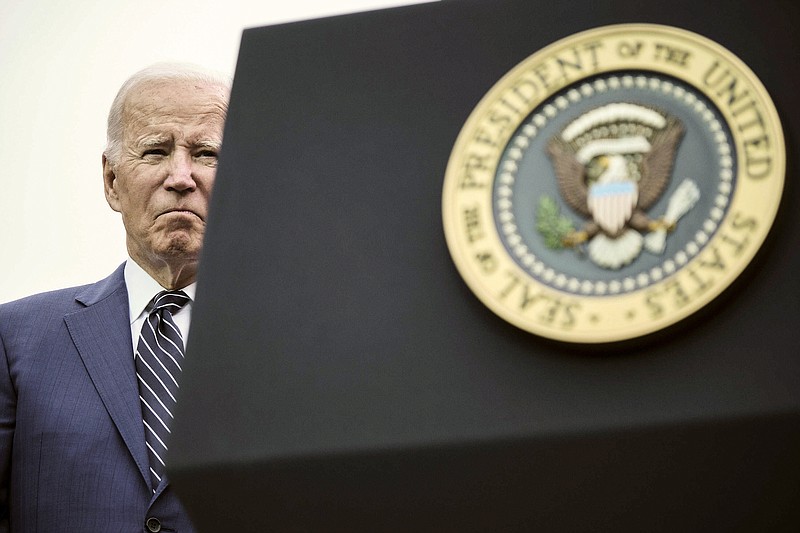If the Democrats end up losing the House and the Senate, an outcome that looks more likely than it did a month ago, it will be nothing particularly shocking. The incumbent president's party almost always suffers losses in the midterms.
But as an exculpating narrative for the Biden administration, this goes only so far. Some races will be settled on the margins, and on the margins there's always something a president could have done differently to yield a better political result.
President Joe Biden is no exception: The burdens of the midterms have been heavier for Democrats because of three notable failures, three courses his White House set.
The first began, as Matthew Continetti noted recently in The Washington Free Beacon, in the initial days of the administration, when Biden made decisions on energy and immigration his party's activists demanded: for environmentalists, a moratorium on new oil-and-gas leases on public lands, and for immigration advocates, a partial rollback of key Trump administration border policies.
What followed in both arenas was a crisis: first a surge of migration to the Southern border, then the surge in gas prices.
There is endless debate about how much the initial Biden policy shifts contributed to the twin crises. But crucially, both policy shifts framed these crises as things the Biden administration sought: more illegal immigration and higher gas prices -- just what liberals always want! And then instead of reframing, prioritizing domestic energy and border enforcement, the Biden White House fiddled with optics and temporary fixes: handing Kamala Harris the border portfolio, tapping the strategic petroleum reserve and generally confirming the public's existing bias that if you want a party to take immigration enforcement and oil production seriously, vote Republican.
The second failure also belongs to the administration's early days. In February 2021, when congressional Democrats were preparing a $1.9 trillion stimulus, a group of Republican senators counteroffered a roughly $600 billion proposal. Flush with overconfidence, the White House spurned the offer and pushed three times as much money into the economy on a party-line vote.
Had Biden taken the offer or even simply counteroffered and begun negotiations, he could have started on the bipartisan footing his campaign promised while hedging against the inflationary dangers that ultimately arrived.
The third failure is on culture rather than economic policy. Part of Biden's appeal was his long-standing record as a social moderate -- an old-school, center-left Catholic rather than a zealous progressive.
His presidency has offered multiple opportunities to inhabit that persona. On transgender issues, for instance, the increasing qualms of European countries about puberty blockers offered potential cover for Biden to call for greater caution around the use of medical interventions for gender-dysphoric teenagers. Instead, his White House chose to deny any real debate exists, positioning the administration to the left of Sweden.
Then there is the Dobbs decision, which turned abortion into a likely winner for Democrats -- provided they could cast themselves as moderates and Republicans as zealots.
Biden could have led that effort, presenting positions he himself held in the past -- support for Roe v. Wade but also for late-term restrictions and the Hyde Amendment -- as the natural national consensus, against the absolutism of first-trimester bans. Instead, he has left Democratic candidates carrying the activist line that no restrictions are permissible.
A strong president, by definition, should be able to pull his party toward the center when politics demands it. If Biden feels he can't do that, it suggests he's internalized his own weakness and accepted in advance what probably awaits the Democrats next month: defeat.
The New York Times
